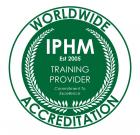Stress is a common issue that affects many individuals in today's fast-paced world. If not managed properly, it can lead to serious health problems, including anxiety, depression, and heart disease. This book can help you.
The first step towards managing stress is recognising its signs. Stress can manifest in various physical, emotional, and behavioural symptoms. Physically, you might experience headaches, muscle tension, fatigue, and changes in sleep patterns. Emotionally, stress might cause feelings of irritability, anxiety, and depression. Behavioural signs include changes in appetite, increased use of alcohol or drugs, and withdrawal from social activities. Being aware of these signs can help you take the necessary steps to manage stress effectively, making you feel informed and aware.
By recognizing stress early, you not only identify a potential threat to your health but also empower yourself to take proactive steps to manage it before it escalates into a more severe condition. This sense of control can be a powerful tool in your stress management arsenal, making you feel more in control and proactive.
There are various techniques you can adopt to manage stress effectively. One of the most popular and effective methods is practising mindfulness. Mindfulness involves being fully present in the moment, which means paying full attention to what you are doing and what is happening around you, and being aware of your thoughts and feelings without judgement.
Exercise is another powerful tool for stress relief. Regular physical activity can help reduce stress hormones and increase the production of endorphins, which are natural mood lifters. Whether it's a brisk walk, a yoga session, or a more intense workout, incorporating exercise into your routine can significantly lower stress levels.
Managing stress not only helps in preventing anxiety, depression, and heart disease but also improves your overall quality of life. When less stressed, you are more likely to experience better mental clarity, increased productivity, and enhanced emotional stability.
Stress is an inevitable part of life, but it doesn't have to control you. Incorporating stress management techniques into your daily routine can lead to long-term benefits. By recognising the signs of stress and implementing effective management techniques, you can significantly improve your overall wellbeing. This is a journey towards a more secure and confident you, filled with hope and motivation for a healthier future.





